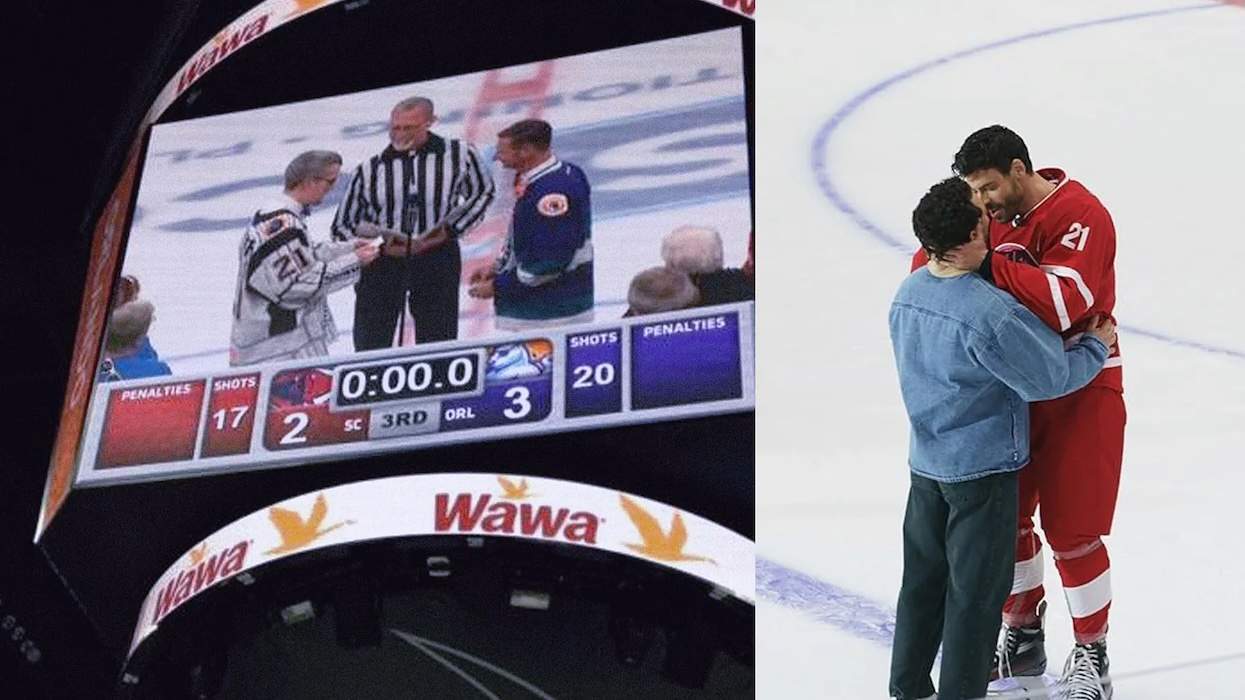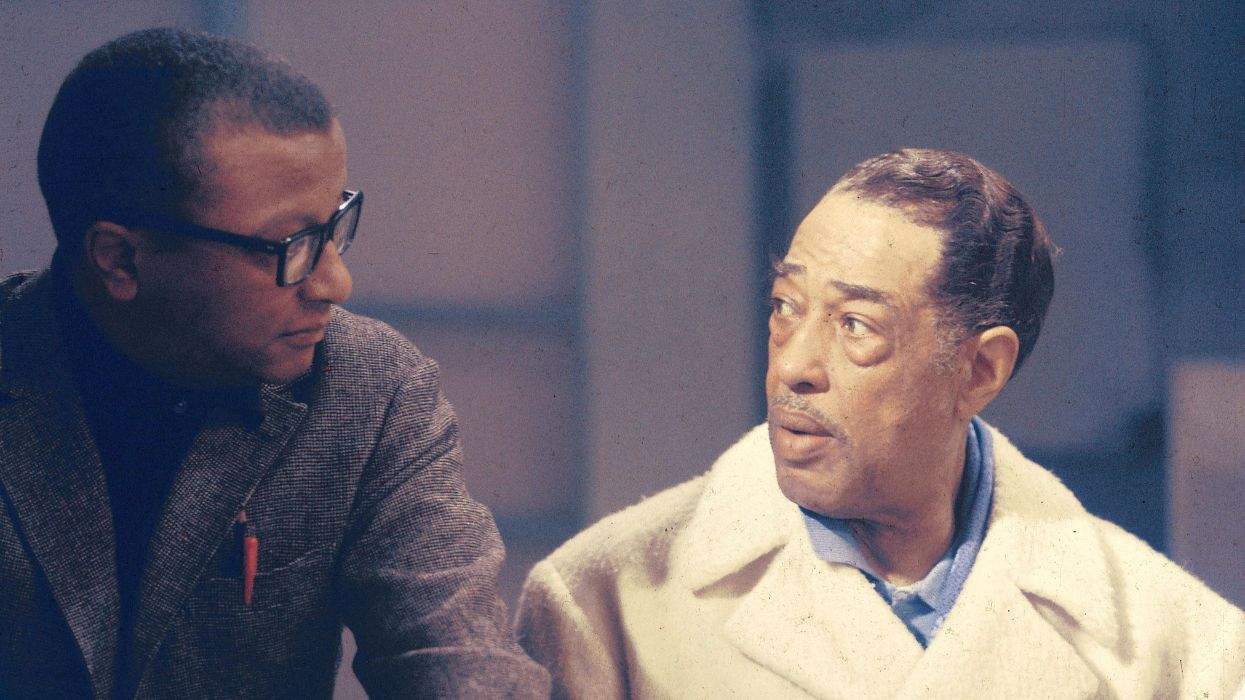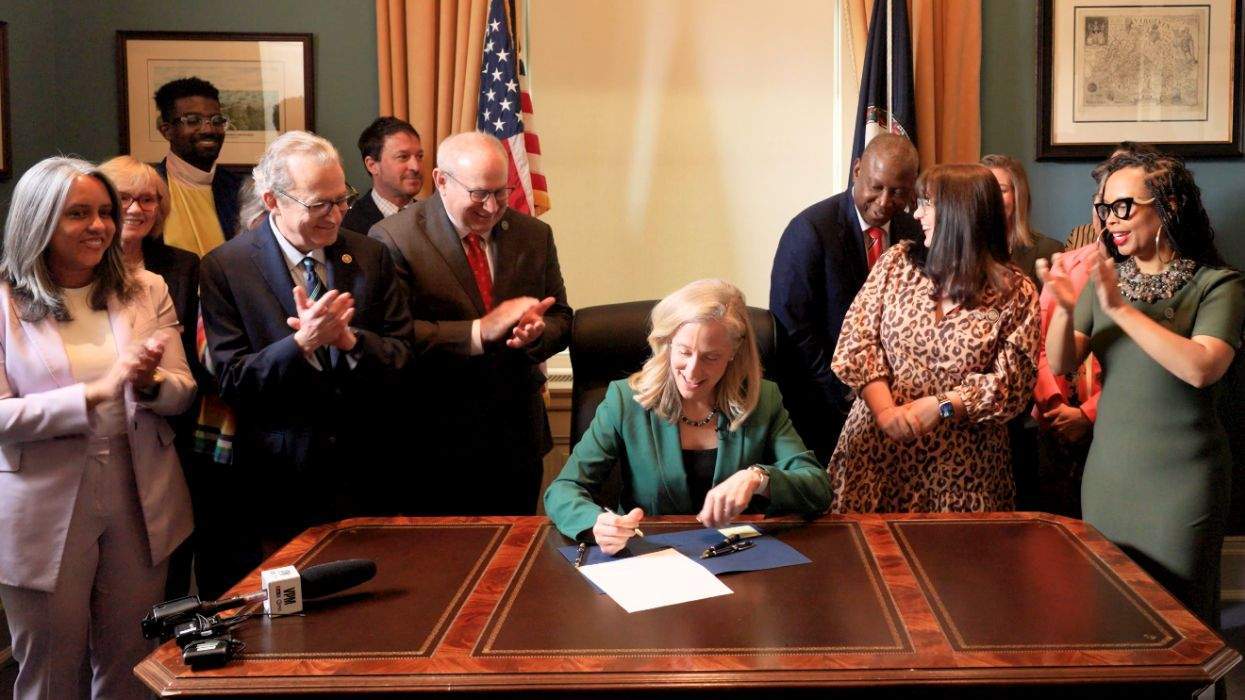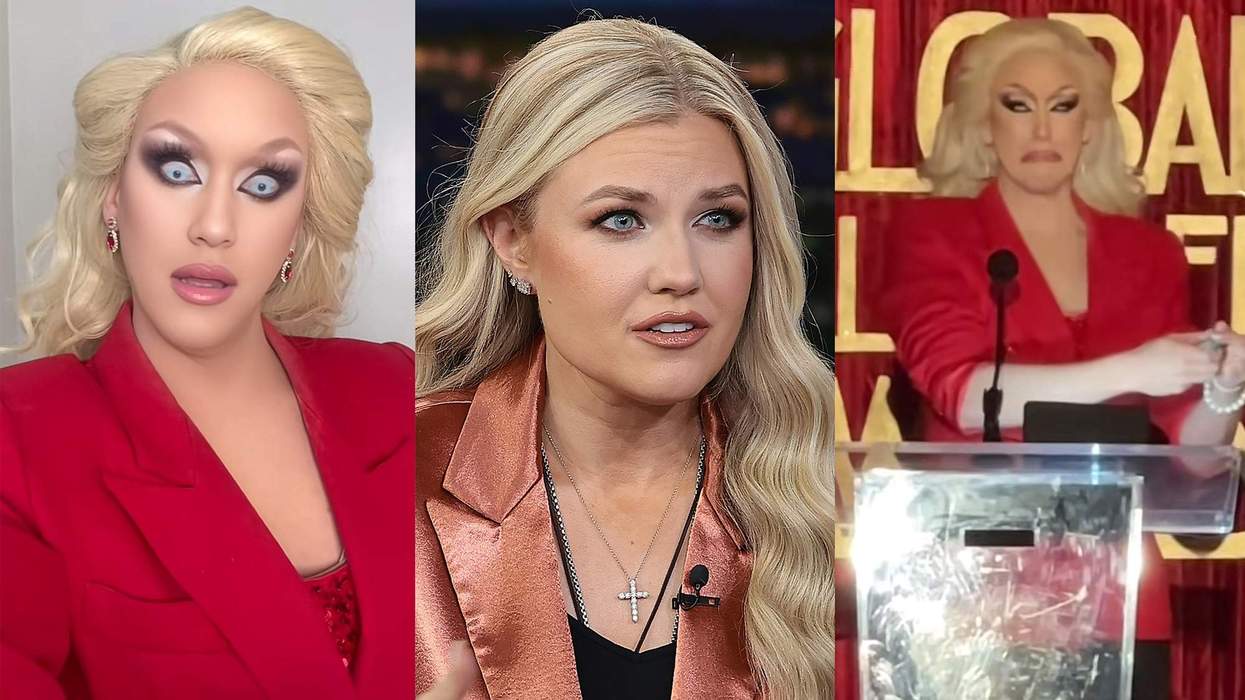One of the things that I inherited from my grandfather was a love of the Kennedys. As a kid, I had a scrapbook for John F. Kennedy, and I proudly had buttons from his 1960 presidential campaign that my great-grandmother gave me. I was fascinated by the Kennedy mystique.
When I graduated from college and began working on Capitol Hill, I was lucky enough to have some interaction with U.S. Sen. Ted Kennedy and his staff. My roommate for five years worked for him, and she was quite popular with her colleagues because of her epic sense of humor.
She introduced me to Paul Donovan, who at the time was Kennedy's press secretary and later would become his chief of staff. Paul turned out to be a mentor. He had his share of tense media interactions when the senator stepped out of line, most notably with the Kennedy's Palm Beach imbroglio in May of 1991 and the rape trial of the senator's nephew William Kennedy Smith.
The congressman I worked for also had several personal and professional embarrassments and controversies that were fodder for the media. As a 20-something, inexperienced press secretary, I was able to turn to Paul for sage advice about crisis management.
Paul also arranged to have the senator send a personal letter to my grandparents on their 50th wedding anniversary. The letter made it sound like Kennedy and I were close friends. My grandfather treasured that letter.
I met the senator a few times. He chaired the Labor Committee in the Senate, and my boss the Labor Standards subcommittee in the House, and we worked on a minimum wage bill together. I remember an incident when the senator entered a room before a hearing, I think, and he was obviously hungover. I recall his shaky hand trying to fix a contact lens that fell out. We all ended up crawling on the floor looking for it.
Kennedy always hosted legendary Christmas parties on the Hill, and I was lucky enough to attend those as well. He was such fun, and I recall getting a real solid pat on the back from him as he passed me once. It wasn't because he knew me and was glad to see me. I think it was his way of just making sure everyone at this party felt welcomed and was having fun. At the time, it was no secret that despite all his faults, Kennedy was the most popular member of Congress.
He remarried in the mid-1990s and settled down, stopped drinking and philandering, and lived the last years of his life in peace. He died of a brain tumor in August of 2009. I remember I was at the gym early in the morning when the news came, and it made me so sad.
Since that time, I've read every book about the senator, including his memoir, and watched all Kennedy-related documentaries and movies -- even Chappaquiddick, the 2017 drama that detailed the most harrowing and personally damaging incident in Kennedy's life.
The point here is not to rehash everything about one of the most complicated, traumatized, and impactful public figures of the 20th century. For those of us old enough, we know all about the good and the bad of Sen. Kennedy and about how his three brothers before him died violently, leaving him, unexpectedly, as the patriarch of the family and arguably the most consequential of the Kennedy brothers.
When the new book about him, Ted Kennedy: A Life, was released last week, I reached out to the author, John A. Farrell. I was anxious to talk about why he still matters and why another book about Ted Kennedy was needed.
First, Farrell is no stranger to writing about notorious politicians. He is the author of Richard Nixon: The Life, which was a finalist for the Pulitzer Prize in 2018. He has also written books about former House Speaker Tip O'Neill, who like Kennedy was from Massachusetts, and storied attorney Clarence Darrow.
As we began our discussion, I told Farrell some of my Kennedy anecdotes but also lamented about the fact that this current generation has no idea who he is, at least from my perspective as an adjunct professor talking about him to my college students. "Sadly, you're right," Farrell agreed. "When I try to explain Kennedy to younger students, I always ask, 'Do you know Mayor Quimby from The Simpsons? That's Ted Kennedy.'"
Laughs aside, I wanted to know why Farrell felt the need to write a book now about Kennedy. "This book has taken almost nine years to complete, and I had the added delay of archives and libraries being closed during the pandemic," he said. "Most historians and authors know that 10 years after a noteworthy person has died, and it's been 13 for Kennedy, the dust settles, and you're able to glean a fuller picture of the individual. I also had access to some of his diaries, which was a first."
There was another reason Farrell cited, and that was the lesson of the legislative side of Kennedy that is sorely needed in today's fractured Congress. "Sen. Kennedy was a masterful legislator, and he's a reminder of how Congress should work, instead of all the gridlock we're experiencing now. Kennedy was so deft at taking a bill or a cause and reaching across the aisle for a partner or cosponsor."
Farrell named a litany of examples that included Kennedy teaming with an array of Republicans, including President Nixon for the war on cancer, Ronald Reagan on voting rights and reducing nuclear weapons, Sens, Orrin Hatch and Bob Dole on AIDS funding, Dole again with the Americans With Disabilities Act, George W. Bush on No Child Left Behind, Sen. Hugh Scott on campaign finance reform, and Lindsey Graham and John McCain on immigration.
"Dan Quayle probably would have never become vice president were it not for Ted Kennedy," Farrell pointed out. "Kennedy teamed with Quayle on the Job Training Partnership Act in 1982, which was popular and was Quayle's only legislative accomplishment while in the Senate."
"Kennedy's accomplishments were monumental, and he was never supposed to be that guy, but he inherited the responsibilities with the deaths of his brothers."
According to Farrell, Kennedy also had the affable personality to be a legislator, unlike his brothers, since John was more introverted and Robert more combative. "Ted Kennedy would invite prospective cosponsors to his office and show that person all the Kennedy history that adorned his office, like the coconut from the island from John F. Kennedy's PT 109 World War II heroics. By the time the person sat down for the meeting, they were awestruck, feeling as if they were sitting with history. And they were."
Farrell and I then focused on Kennedy's history of standing up for marginalized communities. "Kennedy and his siblings were rich, spoiled, and handsome kids of privilege; however, their Irish ancestors endured painful immigrant experiences," Farrell said. "And they were repeatedly told all those horror stories while they were growing up. They had an obligation to help the underdogs. Their parents repeating the famous line from Luke in the Bible, 'To whom much is given, much will be required.'"
That included Kennedy's work on civil rights, voting rights, immigration, and his relationship with the LGBTQ+ community and fight for AIDS funding and education, including the Ryan White Act, which he sponsored.
"When Kennedy was a presidential candidate in 1980, he made it a point to meet with members of the gay community," Farrell noted. "I write about it in the book. It was a bit uncomfortable at first, but after the meeting, Kennedy grew closer to the community, and he had two aides that were instrumental in helping him get AIDS funding through Congress, Michael Iskowitz and Terry Beirn, who sadly died of AIDS in 1991."
"History will recall how Kennedy led the fight for AIDS funding during a time when conservative Republicans ridiculed the marginalized communities most affected by AIDS, gay men, and drug users," Farrell continued. "Again, Kennedy smartly teamed with Republican Sen. Orrin Hatch and Bob Dole to jump-start funding for the epidemic. Hatch and Dole were not supportive of the gay community, for sure, but they were nice men. In fact, in response to a reporter's question to Dole about why he was cosponsor of an AIDS bill, he grumbled, 'Sometimes you just have to do what's right.'"
The first attempt at passing a comprehensive AIDS bill failed because of the efforts of a true enemy of the gay community, Sen. Jesse Helms. "Kennedy, Dole, and Hatch put another bill together, and on the second piece of legislation, they were able to get the votes to defeat Helms," Farrell related. "And with Kennedy's Ryan White bill, it was Hatch who gave one of the most moving speeches on the Senate floor about AIDS at that time. Were it not for Ted Kennedy, who knows what would have happened to Congress's response to AIDS?"
What was the most surprising thing that Farrell discovered while researching Kennedy? "How sad and tormented he was," Farrell was quick to respond. "He came across as exuberant, but actually the thesis of the book is that Kennedy was always running. He felt if he stood still he would be overcome by emotion."
"I once told him that he was like a great white shark that had to keep swimming, and if it stopped it would drown and die. Kennedy drew a picture of a great white and sent it to me with a caption, 'Ted the Shark.'"
"He ran as fast as he could, with booze and with women at night, and fought hard in the senate the next day. He kept that sensation of moving to avoid contemplating all the bad experiences and tragedies that filled his life."
Did Farrell come to a conclusion about what Kennedy's legacy might be? "His biggest contribution was arguably his work on the Affordable Care Act before he died. But I think the biggest lesson Ted Kennedy provides is never taking a win for granted."
"He led the fight for some of the most historic bills ever passed by Congress, including campaign finance reform, immigration, and voting rights. Now, look where those laws stand today. They're all gone or in danger of being eliminated. If Kennedy was still alive, he'd be fighting hard to make sure all that work wasn't erased."
John Casey is editor at large for The Advocate.
Views expressed in The Advocate's opinion articles are those of the writers and do not necessarily represent the views of The Advocate or our parent company, Equal Pride.
















Charlie Kirk DID say stoning gay people was the 'perfect law' — and these other heinous quotes
These are some of his worst comments about LGBTQ+ people made by Charlie Kirk.